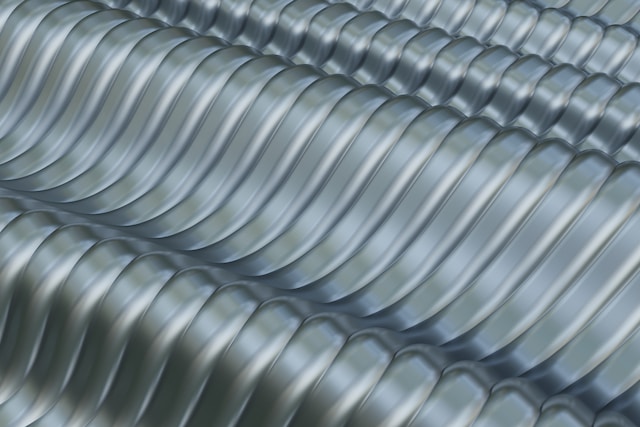Sleipner steel is a type of high-performance steel that has become increasingly popular in various industries. It is known for its exceptional strength, toughness, and resistance to wear and tear. If you still have any questions about Sleipner steel, then we’ve got just what you need. In this article, we will explore everything you need to know about Sleipner steel, including its properties, applications, and advantages.

Properties of Sleipner Steel
Sleipner steel was first developed by Uddeholm, a Swedish steel manufacturer. It is a type of tool steel that contains high levels of carbon, chromium, molybdenum, and vanadium. The exact composition of Sleipner steel may vary depending on the manufacturer, but it typically contains around 1% carbon, 8% chromium, 2% molybdenum, and 1% vanadium.
One of the key properties of Sleipner steel is its high hardness. It has a Rockwell hardness of around 60 HRC, which makes it ideal for applications that require resistance to wear and abrasion. Additionally, Sleipner steel has excellent toughness, which means it can withstand impact and shock without breaking or cracking.
Another important property of Sleipner steel is its high corrosion resistance. It contains high levels of chromium, which forms a protective layer on the surface of the steel, preventing it from rusting or corroding. This makes it ideal for use in harsh environments, such as marine or chemical applications.
Applications of Sleipner Steel
Sleipner steel is widely used in various industries that require high-performance materials. One of its primary applications is in the production of cutting tools, such as drills, milling cutters, and saw blades. Its high hardness and toughness make it ideal for cutting and shaping hard materials, such as metals, plastics, and composites.
Another common application of Sleipner steel is in the production of plastic injection molds. The high wear resistance and corrosion resistance of Sleipner steel make it ideal for use in the harsh environment of a molding machine. Additionally, its high toughness helps to prevent cracking or breaking under the high pressures and temperatures of the molding process.
Sleipner steel is also used in the production of components for the oil and gas industry. Its high strength and corrosion resistance make it ideal for use in offshore drilling rigs, pipelines, and other equipment that is exposed to harsh environments. Additionally, its high toughness helps to prevent cracking or failure under the high stresses and pressures of these applications.
Advantages of Sleipner Steel
Sleipner steel offers several advantages over other types of steel and materials. One of its primary advantages is its high hardness and wear resistance. This makes it ideal for use in applications that require cutting, shaping, or drilling hard materials.
Another advantage of Sleipner steel is its high toughness. This helps to prevent cracking or failure under high stresses and impacts, making it ideal for use in applications that require resistance to shock.
Additionally, Sleipner steel offers high corrosion resistance, which makes it ideal for use in harsh environments. This can help to extend the lifespan of components and equipment, reducing maintenance and replacement costs. To add to this, high corrosion resistance also means the material lasts longer. This makes it more environmentally friendly, as reducing steel corrosion is vital to combating climate change.
Finally, Sleipner steel is easy to machine and work with. It can be cut, shaped, and drilled using standard machining techniques, making it a versatile material for a wide range of applications.
Conclusion
All in all, Sleipner steel is a high-performance material that offers exceptional strength, toughness, and resistance to wear and tear. It is widely used in various industries, including cutting tools, plastic injection molding, and the oil and gas industry. Its high hardness, toughness, and corrosion resistance make it ideal for use in harsh environments and applications that require resistance to wear and impact. Additionally, its ease of machining and versatility make it a popular choice for many different applications.
Are you looking for EDC essentials? Discover an ultimate variety of pocket knives, tactical flashlights, gun holsters, and other everyday carry (EDC) essential items. Here at EDC HUB, we offer the latest news and information on the best everyday carry tools available on the market. If you’re interested in learning more about other types of metal, you might be interested in our article on H1 steel!
